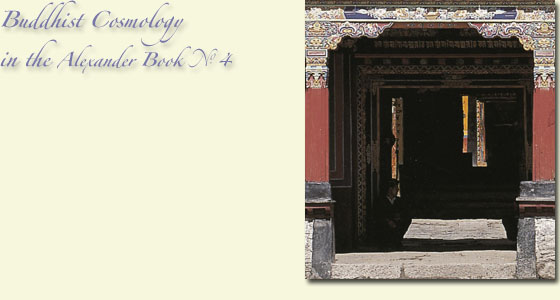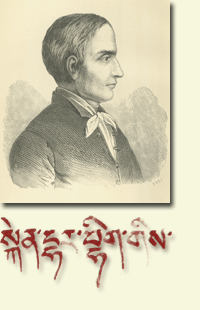

|
We should note that the image of the world depicted here does not coincide with the Indian astronomy of the period. This work describes a world only perceivable to illuminated buddhas and arhats, as only these illuminated beings can clearly experience the circumvolution of birth, destruction and rebirth, and the chain of acts (karma) maintaining it. This cosmology is therefore not based on any scientific knowledge, rather, it is a system connected with the basic teaching of Buddhism. The short summary presented here is written by Kun-dga’ Chos-legs, and is based on the work entitled Abhidharmakośabhāsya by the outstanding 4th-century Buddhist philosopher Vasubandhu. In the present electronic edition we publish the complete facsimile of the 40 page manuscript, accompanied by the Romanized transcription of the Tibetan text, as well as its Hungarian and English translations. To browse back and forth in this text, click on the thumbnails of the manuscript leaves on the top of each page.
|

